Black History Month: Q&A with JAX's own
Happy Black and African American History Month from The Jackson Laboratory!
According to The History Channel, Black History Month (also known as African American History Month) is an annual celebration of achievements by African Americans and a time for recognizing their central role in U.S. history. Historian Carter G. Woodson and minister Jesse E. Moorland kicked off the tradition in 1926, choosing the second week of February to coincide with the birthdays of Abraham Lincoln and Frederick Douglass. Black History Month has been an officially designated by U.S. presidents since 1976.
To celebrate here at JAX, we interviewed some of the Black and African American employees from across our various campuses and job roles to ask about their work at JAX, their heritage and notable moments in Black and African American history.
Torrian Green
Torrian Green is a behavioral research specialist in the Center for Biometric Analysis at JAX. He validates and conducts studies to assess clinically relevant mouse models of neurodevelopmental disorders, neuropsychiatric conditions and neurodegenerative diseases. 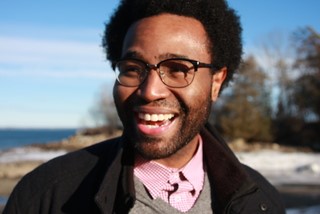
How do you identify?
“Black/African American.”
What makes you proud of your heritage?
“Resilience and perseverance are the cornerstones of African American history. Being a descendant of people who have always stood strong in the face of adversity lets me know that I can confront anything that comes my way.”
What is a notable moment of African American History that you would like to share?
“1968 Olympics in Mexico City: During the award ceremony after the 200m race for Track and Field, Tommie Smith and John Carlos stood in solidarity by lowering their heads and raising their fists in protest against the continued racial discrimination of Black people in the United States. In the iconic picture, Tommie raised his right hand and John Carlos raised his left, symbolizing an arch of unity and power. Although these two men were vilified by the Olympic organizers, when they returned home, they were seen as heroes by the African American community.”
Johnnie Moore Dotson
Johnnie Moore Dotson is a senior project manager with JAX® Mice, Clinical & Research Services. In her role, she works with researchers to design and implement custom breeding projects that support their research goals and is responsible for keeping clients informed on progress and ensuring that projects remain on track within designated timelines and budgets. In addition, she leads a team of project managers and administrators that also support breeding projects.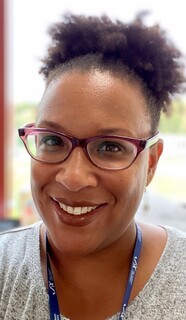
What is a project that you’re working on that you’re excited about?
My team was involved in generating and breeding a new mouse model for COVID-19 research. I am excited to see how the broader scientific community uses this model to identify possible treatments and what new knowledge will be gained.
How do you identify?
“I identify as Black/African American. My pronouns are she/her.”
What makes you proud of your heritage?
“Our perseverance, creativity and sense of community. There are many instances throughout history when my ancestors faced obstacles that seemed insurmountable. Yet, we as people found ways to overcome them and survive, often with access to limited or no resources. As my elders would say, ‘We made a way out of no way.’”
What is a notable moment of Black/African American History that you would like to share?
“I am inspired by events and people of the Civil Rights Movement. A few years ago, I learned about Georgia Gilmore. She was a midwife, a cook and an activist. She used her cooking skills and sold food to raise record amounts of money to fund the movement. She organized other Black women to cook and sell food too. The funds they raised were used to hire Black drivers to transport people during the Montgomery bus boycott. I love her story because it is a great example of how one person can make a difference using their innate skills and inspire others to do the same.”
Kevin Anderson
Kevin Anderson, Ph.D., is a postdoctoral associate in Roel Verhaak’s lab. He utilizes computational approaches to study heterogeneity in brain tumors.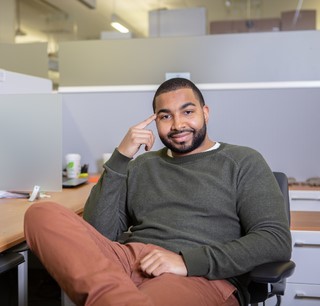
What is a project that you’re working on that you’re excited about?
“I’m currently working on a project looking at the effects of methylation disorder in brain tumors at the single cell level. For that work, we have been integrating single cell gene expression and methylation data. The work is transitioning into other integrative single cell analyses, and that I’m pretty excited about.”
How do you identify?
“I like to identify as Black.”
What makes you proud of your heritage?
“Every once in a while, when I’m out somewhere, particularly if I’m traveling somewhere unfamiliar, I can run into someone who’s Black and have a genuine connection sparked by the unspoken understanding that we have gone through similar things growing up in America. And particularly when they are older than me and if they find out that I have a doctorate or work in cancer research, they are genuinely proud of a complete stranger. It warms my heart that we can still have that level of community when it seems like empathy in general is fading.”
What is a notable moment of Black/African American History that you would like to share?
“One thing that comes to mind is the story of Richard Allen, the founder of the African Methodist Episcopal Church. The organization of Black churches that came from that was very important culturally for Black America and growing up, moving around as much as I did, those churches meant a lot for my family with getting acclimated to a new area and being a part of a new community.”
Omobola Cole
Omobola Cole is a predoctoral associate in Adam William's lab. She studies microRNAs and long non-coding RNAs (lncRNAs), and how they could impact gene expression and regulation. "In our laboratory, we focus on the role of non-coding RNA in asthma inflammation," she says.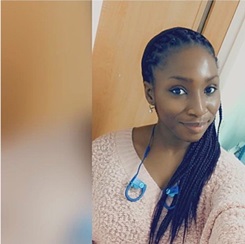
What is a project that you’re working on that you’re excited about?
“My current position is focused on deducing molecular underpinnings of STAT6 signaling in type 2 asthma inflammation. I'm excited about identifying how long noncoding RNAs interact with STAT6 during asthma inflammation and discovering other biomolecule players in STAT6 signaling."
What makes you proud of your heritage?
“From the exciting nightlife to the commercialization-focused hotspots, Lagos represents a huge portion of my heritage - the heartbeat of my resilience, Washington DC.”
What's your favorite piece of Black history?
“Among numerous remarkable scientists, I'd like to highlight Gladys West in honor of Black History Month. Thanks to her, we visit global destinations unknown, to explore far and wide, seeing the world through our very own lens with the help of a GPS!”
Ella Torian
Ella Torian is an opportunity development manager for JAX® Mice, Clinical & Research Services. She’s a sales professional with 30 years of experience and has been with JAX for 6 years now. “I consider myself the liaison between JAX and our customers who need mice and services to advance their studies leading to solutions to help eradicate diseases.” She focuses, geographically, on sales in eight states in the Southeast as well as Puerto Rico.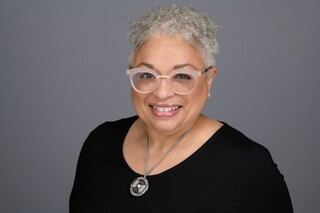
What is a project that you’re working on that you’re excited about?
“I enjoy getting to know the thought leaders in the scientific community, learning about their challenges and why they study in their therapeutic areas. One example is of a gene therapy project for a customer/sponsor in South Carolina who has 2 out of 5 children with a terminal rare disease, Non Ketotic Hyperglycinemia (NKH). Children with NKH require around the clock care.
This type of project is very moving and makes me passionate about contributing to the success and the sacrifice our models make. Working with Cat Lutz’ team on these types of Rare and Orphan disease projects makes me appreciative of the technical competence at JAX and our recognition by the scientific community.”
How do you identify?
“African American, Ancestry indicates 75% West African and 25% European.”
What makes you proud of your heritage?
“African Americans have contributed in profound and unique ways from the origins of landing on this continent to today. The scientific significance we take for granted like the traffic light (Garrett Morgan) to HeLa cells (Henrietta Lacks), to the current COVID-19 vaccine (Kizzmekia Corbett). I am also especially proud of the continued strides made daily to shatter glass ceilings, like former President Barack Obama, Vice President Kamala Harris and CEO of Walgreen’s Global Roz Brewer.”
What is a notable moment of Black/African American History that you would like to share?
“Every day is Black History Month for me. The truth of the 1619 Project should be evident, clearly showing how enslaved people were brought to the Americas and how that was an integral part of our social, political and economic institutions. Nikole Hannah-Jones published this in 2019 and was awarded the Pulitzer Prize for her research. For me, understanding my ancestor’s plight to freedom and education gives me pause to not complain. I really am fortunate to stand on their shoulders every day.”
Anything else you would like to add?
“I am a proud alum of an HBCU (Delaware State University) along with my father, sister and brother-in-law.”
Lenae Hoffman
Lenae Hoffman is an associate talent acquisition partner with the Human Resources team at JAX. She’s currently working on recruiting for our Animal Care & Operations team in Sacramento, California.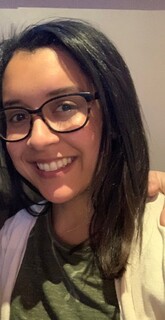
What is a project that you’re working on that you’re excited about?
“I am excited to be working with Black Employees Leading Inclusion, Excellence, Vision and Education (BELIEVE) to help increase diversity at JAX.”
How do you identify?
“African American.”
What makes you proud of your heritage?
“I am proud of my heritage because of our ability to be resilient and persevere.”
What is a notable moment of Black/African American History that you would like to share?
“Harriet Tubman’s story has always inspired me. I admire her so much for her bravery. I know that there are many more amazing and brave Black women in history, but she has always resonated with me.”
My favorite quote by her:
“Every great dream begins with a dreamer. Always remember, you have within you the strength, the patience, and the passion to reach for the stars to change the world.” – Harriet Tubman
Olaitan Awe
Olaitan Awe is a systems analyst in the Information Technology department at JAX. In his role, he works primarily with the Data Services team on archiving and retrieval of data generated from sequencing experiments and other non-sequencing experiments. He works directly with principal investigators, postdocs, graduate students, interns, and researchers. 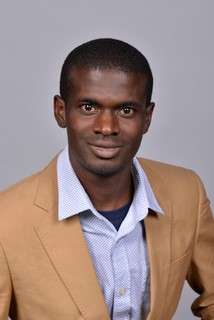
The IT department is an agile team, and Olaitan serves as an agile leader. In this role, he identifies issues with their data archiving systems in order to ensure that they’re optimized for efficient operation.
What is a project that you’re working on that you’re excited about?
“A collaborative project with the ITSM team, aiming to introduce new forms for requesting data archiving and retrieval. Researchers and scientists in any lab can now log on to ServiceNow and fill out these archiving and retrieval forms, which are directly routed to my team. It’s now much quicker to get new jobs started.”
How do you identify?
“Black/African American.”
What makes you proud of your heritage?
“Black is beautiful. I’m proud to be who I am, making it despite the odds that I had growing up in Africa. I’m also proud of several things in such a rich and diverse culture: the food, music, faith, perseverance through adversity, respect for elders, discipline and dignity of labor.”
What is a notable moment of Black/African American History that you would like to share?
“The inspiring story of Dr. Martin Luther King Jr. and his leadership of the Civil Rights Movement, calling for an end to racism and segregation in all areas of life.”
Dashara Jackson
Dashara Jackson is an animal use trainer at JAX. In her role, she provides hands-on training for JAX employees and personnel in need of learning surgical and nonsurgical procedures.
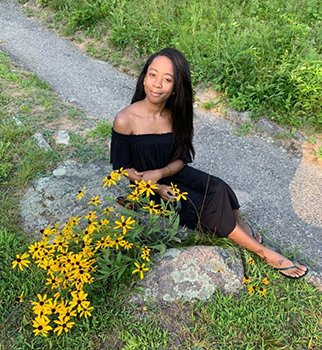
How do you identify?
“Black/African-American and she/her.”
What makes you proud of your heritage?
“I love everything about my heritage, but especially our contribution to research science leading to the improvement of global human health.”
What is a notable moment of Black/African American History that you would like to share?
“I love the unity and knowledge Black History Month brings through the promotion of inventors and key contributors to health, science, math, education, social justice reforms, etc.”
Anything else you would like to add?
“Favorite quote: ‘Injustice anywhere is a threat to justice everywhere.’ -Martin Luther King Jr.”